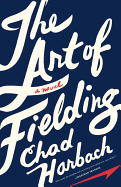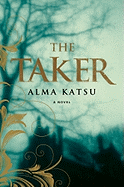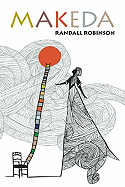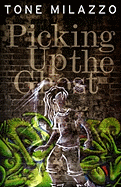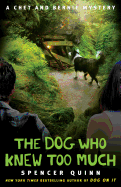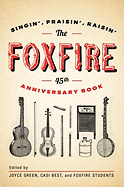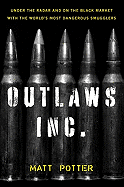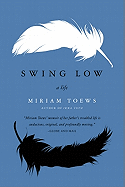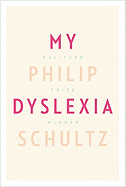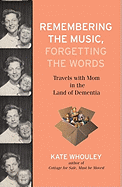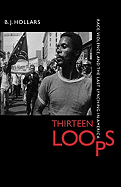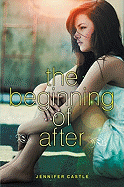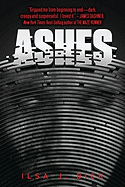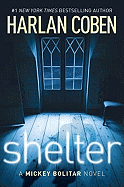Friday, September 9, 2011
I'm a big believer in farmers' markets. The Shelf's Seattle office is only a block away from the famous Pike Place Market, and my daughter and I go almost every week to our neighborhood farmers' market, surveying the local farmers' bounty. Okay, I survey the bounty, she eyes the ice cream truck.
But recently I began to see the farmers' market and the people in the booths behind them differently, thanks to a book by Amy Cortese.
Locavesting: The Revolution in Local Investing and How to Profit From It, published by Wiley in June, teaches you how to think about what you do with your money and how important it is to invest in your community. It's heartening, of course, for those of us in the book business to read in the pages about some of our favorite bookstores, championed because the community invested in them. Reading the stories of how every time you choose to spend your money locally and how it directly enriches your everyday life is, well, life-changing. My pals are almost sick of me lecturing them about this, but truly, pick it up, read it, and I dare you not to feel completely compelled to take all your money out of that big evil bank and find one that does something to better your community. They exist; go find them. At the farmers' market I've insisted my daughter ask vendors to tell us about their journeys. We hear stories of farms, the acreage they're protecting, the people they employ and details about how they make that incredible blackberry ice cream--because it was their grandmother's secret recipe and is from the cows that are descended from their favorite bovines of childhood. My daughter looks up at me with expectant eyes, and I can only hear the wondrous call of "locavesting" and say, "Yes. Ice cream. Before dinner. Yes." --Jenn Risko, publisher, Shelf Awareness
At the farmers' market I've insisted my daughter ask vendors to tell us about their journeys. We hear stories of farms, the acreage they're protecting, the people they employ and details about how they make that incredible blackberry ice cream--because it was their grandmother's secret recipe and is from the cows that are descended from their favorite bovines of childhood. My daughter looks up at me with expectant eyes, and I can only hear the wondrous call of "locavesting" and say, "Yes. Ice cream. Before dinner. Yes." --Jenn Risko, publisher, Shelf Awareness
The Art of Fielding
by Chad Harbach
Henry Skrimshander is the perfect natural shortstop, and he's all but memorized The Art of Fielding by the greatest shortstop who ever lived. After finishing his final high school baseball game, Henry is approached by Mike Schwartz of Westish College, who offers him a scholarship. Short, scrawny, awkward Henry turns out to be a baseball phenom. Together he and Schwartz set out to change the course of Westish athletics.
The novel chronicles five changing lives during Westish's first tumultuous championship season: Guert Affenlight, the troubled president of the college who once discovered a lost lecture of Herman Melville and now finds himself falling in love with a student; Pella, his lovely, formerly estranged daughter who has run away from her husband without leaving a note; Mike Schwartz, the catcher from Chicago, a big, hairy mountain of muscle and soul who captains the Westish Harpooners and takes Henry under his wing; Owen Dunne, a gay, mulatto, environmentalist student nicknamed the Buddha, who is not afraid to kiss the college president; and Henry Skrimshander, weaving through all of their lives, the miracle shortstop who begins to doubt himself the moment the pro scouts start making their offers.
The story's many minor characters frequently break into full, three-dimensional life with a telling detail or a revealing comment: Chef Spirodocus, the proud, underestimated head of Dining Services; Adam Starblind, the baseballer with movie-star looks and perfect teeth; Izzy Avila, Henry's protégé who is training to take his place. As all of these characters grow and change and meet each other, they become more and more richly human, multifaceted and so real that when Schwartz and Pella quarrel, you feel their pain; when Pella and her father exchange hurtful words, the reader hurts along with them.
Debut author Harbach keeps the pace moving and is adept at ending his chapters with unexpected lump-in-the-throat revelations. As the Harpooners work their way closer and closer to the championship they've never won, as Henry becomes a greater and greater liability, the novel hurtles toward its unguessable ending and the suspense of the final game. --Nick DiMartino
Discover: A big-hearted baseball novel about a small, scrawny high school kid who may be the greatest shortstop who ever lived.
The Taker
by Alma Katsu
When a blood-covered young woman is brought into a rural Maine emergency room, Dr. Luke Findley thinks it's just another case of woman gone mad. However, it's much more than that, and so begins the autobiographical flashback that is The Taker.
The narrator is 200-year-old Lanny, and the police think she murdered someone in the forest nearby. She asks Luke to help her escape, and in order to make him believe she's other than the usual psychopath, she cuts herself. Miraculously, the cut immediately heals. From there, Lanny tells her story, and the rest of the book vaults between present and past.
The Taker is Katsu's debut, and she is a spellbinding writer. Her prose is so beautiful, it makes you ache. Yet, there are missed opportunities involving character development, plot twists and creep factor. The most obvious problem is Lanny's eternal love for her childhood friend Jonathan, an unappealingly weak and self-centered character.
Katsu's debut has a promising opening and an interesting middle, but an ending that is less than spectacular. A writer with as much technical skill as Katsu will surely publish again; we hope she finds a story truly worthy of her exceptional voice. --Sara Dobie, blogger at Wordpress
Discover: A supernatural saga with beautiful prose and a few plot stumbles, but all in all, a debut by an author worth following.
Makeda
by Randall Robinson
Randall Robinson, best known for his efforts in foreign policy advocacy and his bestselling nonfiction works An Unbroken Agony and Quitting America, turns his hand to fiction with the story of a young African-American man whose sense of self is shaped and buoyed by his visions of the past.
Gray March feels little connection to his emotionally distant parents, but from early childhood he is strongly bonded to his blind grandmother Makeda. Only to Gray will she divulge her dreams of Africa, dreams that she believes are true memories of past lives. As he comes of age against the turbulent backdrop of the Civil Rights movement, Gray discovers a need to prove to the world that his grandmother is right about her visions.
While the plot could not exist without the concept of reincarnation, Robinson's message has little to do with the mechanics or spiritual implications of past lives. Instead, Gray's ability to come to terms with himself through discovery of his family and racial history symbolizes the healing power that comes with knowing one's roots. One of Gray's professors suggests that black Americans are struggling with their cultural identity because slavery ripped it from them, but Robinson is not only exploring what it means to be black. His theme of knowing the past before planning the future applies to all cultures, all people. Pick up this odyssey of family drama, history and love, and be prepared to consider your own beginnings. --Jaclyn Fulwood, graduate assistant, University of Oklahoma Libraries
Discover: A young man's journey to uncover the truth behind his grandmother's visions of past lives in Africa, set against the backdrop of the Civil Rights movement.
Picking Up the Ghost
by Tone Milazzo
If H.P. Lovecraft and Boondocks creator Aaron McGruder had a literary love child, it just might look like Picking Up the Ghost. This genre-defying fusion of social parable and monster mash horror may challenge older audiences, but Milazzo's debut novel is worth a read. Trapped in a burnt-out factory town on the banks of the Mississippi, at 14, Cinque Williams already bears the weight of the world on his thin brown shoulders. As a smart kid who keeps his nose clean, maybe, just maybe, he will break away to a brighter future. But Williams yearns for the absent father he never knew and when one day a letter arrives informing him of his father's death, everything changes. "If his life was a river," Cinque reflects, "he'd better find its source soon because it was drying up."
Plagued (literally) by ghosts from his father's past, Cinque embarks on a journey with supernatural and metaphysical dimensions. Milazzo's characters are a combination of gangsta sass and Aleister Crowley creepy, and the blighted urban backdrop they haunt is both fantastic and all too familiar. In his battle to escape the sins of his father, no hand from here or beyond can help, so Cinque must "make the act from himself." A skeptical reader may find the comic book proportions of the hero's struggle a bit hard to swallow, but it does beg the question: Are Cinque's odds really any worse than those facing so many young black men? --Tom Lavoie, former publisher
Discover: The juju it takes to duel with ghosts, gangstas and the demons of self in this novel that will appeal to teens as well as adults.
Mystery & Thriller
The Dog Who Knew Too Much
by Spencer Quinn
The fourth installment of Spencer Quinn's Chet and Bernie series finds the dynamic PI duo tracking a missing boy. Devin vanishes one night while out camping in the high country with his hike leader and four other boys. The leader believes that Devin wandered off in the night to go to the bathroom and simply got lost. His mother thinks her ex-husband snatched the boy. All the theories go down the drain when expert tracker Chet noses out startling new clues and Bernie ends up in jail on suspicion of murder. Life with Chet and Bernie can never be simple, as even a stray puppy proves in The Dog Who Knew Too Much.
The relationship between Chet and Bernie has been compared with Scooby Doo and Shaggy or Wallace and Gromit, but those pairs don't have the same depth of connection as these two: there is a lot of humor but it's also a respectful, insightful and passionate relationship. Chet and Bernie are a pack unto themselves and they know their roles, so when other factors influence that pack dynamic, such as a stray puppy, the characters' reactions and interactions are as suspenseful as the plot events.
Murder and a missing child are dark, solemn topics; Quinn manages to convey that seriousness while still entertaining his readers. With Chet narrating, readers are reminded of many things we humans take for granted, and we get a look at ourselves that we may not have considered before.
Give yourself a treat with The Dog Who Knew Too Much. --Jen Forbus of Jen's Book Thoughts
Discover: The team of canine Chet and PI Bernie will keep you turning pages as the duo solve cases and steal your heart.
Nonfiction
The Foxfire 45th Anniversary Book
by Casi Best, Joyce Green and Foxfire Students, editors
Contrary to popular myth, the '60s weren't just about peace, love, rock 'n' roll, weed and protests. They were also years of celebrating do-it-yourself, back-to-the-land simplicity... including self-published books (what goes around comes around).
Two of the most popular books of the era became the seeds of entire movements. Stewart Brand's Whole Earth Catalog (1968) was the Google of its day (even Steve Jobs says so), and its many branches continue today (now on the Web, of course). Brand was from Stanford and in the midst of northern California ferment, so his success makes some sense. The Foxfire Book (1972), however, grew from a small boarding school magazine started in 1966 by students in the Appalachians of northeast Georgia. If anything, it was the anti-Google, consisting initially only of interviews with frequently illiterate (but wonderfully raconteurial) native mountain folks.
Twelve editions of the Foxfire books were published by Random House through 2004, covering all manner of local folklore and customs, from corn shucking to wicker weaving. In 2006, highlights were collected in the 40th anniversary edition subtitled "Faith, Family, and the Land." Now we have the 45th anniversary edition ("Singin', Praisin', Raisin' "), with more interviews, photos, music and tributes. As Michael Pollan and others emphasize the benefits of being locavores, these greatest hits from the back-to-the-land '60s may be just in time. –-Bruce Jacobs, founding partner, Watermark Books & Cafe, Wichita, Kans.
Discover: The colorful folk wisdom and practical self-sufficiency of generations of Appalachian mountain people.
Outlaws Inc.
by Matt Potter
Since the Soviet Union went into meltdown 20 years ago, a rogue band of suddenly unemployed Russian Air Force pilots has been flying cut-rate, broke-down, "surplus" Ilyushin cargo planes filled with everything from U.N. emergency relief supplies to Kalashnikov semi-automatics into the world's worst trouble spots.
Multilingual BBC journalist Matt Potter managed to embed with one such group of hard-drinking, hard-smoking, gonzo-flying mercenaries, and he reports the details of their adventures in his first book, Outlaws Inc.: "Call them and the twenty-four-hour, no-questions-asked elite crew will fly whatever you've got to wherever you want it in one of the largest planes on earth, danger no object--if the price is right."
Potter takes us along on white-knuckled, corkscrew landings into anti-aircraft RPG-defended Afghan airstrips, rebel outposts from the east to the west coasts of Africa and the coca jungles of Central America. In Potter's sure narrative hands, the leader of this Russian posse comes across as a resourceful and talented pilot just trying to feed his family, rather than some evil criminal. –-Bruce Jacobs, founding partner, Watermark Books & Cafe, Wichita, Kans.
Discover: A thrilling cockpit-eye ride with a gang of Russian mercenaries who fly whatever the market wants wherever it wants it.
Swing Low: A Life
by Miriam Toews
Coinciding with the release of her fifth novel, Irma Voth, Miriam Toews's memoir of her father is new to Americans, but it was published in Canada in 2000, before her other books. Readers of Toews's ("tayvz") novels will recognize the small Manitoba town, strict Mennonite community and close-knit, plain-living families of her fiction. But in the story of Mel Toews, written as a memoir in his voice, we don't find the often negligent fathers of the novels. Mel did his best, in spite of the debilitating manic depression (now known as bipolar disorder) that was diagnosed at 17 and led him to walk in front of a train at 52, in 1998.
While he was hospitalized (without psychiatric care) in the weeks before his death, Mel asked Miriam to write down his thoughts, and she filled legal pads for him to re-read, hoping these words might "lead him out of his confusion and sadness." After his death she continued to write in his voice, and the memoir reveals poignant insights into Mel's life as his family remembers him--a gifted elementary schoolteacher, devoted churchgoer and community leader and a caring father who despaired that he could not overcome his depression or fend off his retreats into solitude and silence. Miriam, as Mel, inserts frequent witticisms and ongoing stories of the love and understanding in her parents' marriage and her mother's unflagging support of her husband.
A compassionate homage, Swing Low is also an inspiring tribute to faith and family. --Cheryl Krocker McKeon, bookseller
Discover: A brave and loving memoir of the novelist's father and his struggle with manic depression.
My Dyslexia
by Philip Schultz
It would be difficult to imagine a better guide to the workings of a dyslexic mind than Philip Schultz, whose memoir is as tender, piercing and exigent as his poetry collections. Schultz didn't know his symptoms had a name until he was 58 and his son was diagnosed with dyslexia. After winning the Pulitzer Prize four years later, he was struck by how often he talked about his dyslexia in public and in interviews, as if it were begging him to pay attention.
Re-analyzing his life through the lens of dyslexia, Schultz uncovers the science behind the learning disability, his misconceptions about his own intelligence and painful memories of his frustration in the classroom and beyond. In distilled, calm prose, he admits that writing about it now causes him great anxiety, even pain. "It's a tricky business," he writes, "trying to understand the labyrinthine and subterranean circuitry of one's own mind." He remembers how, when the spaceship computer comes to life in 2001: A Space Odyssey, he felt he, too, was fighting the very mechanism that controlled him.
Schultz, who did not learn to read until he was 11, describes the effort it still takes to decode printed symbols into meaningful language. And yet combining emotion and language in poetry gives him great joy, which he shares with others as a teacher. Despite his struggles, shame and longtime ignorance--or maybe because of them--his memoir culminates in a resounding message of hope for future generations of students, his son and anyone with a story to tell. --Claire Fuqua Anderson, fiction writer
Discover: A poignant memoir about a Pulitzer Prize-winning poet's lifelong struggles with dyslexia.
Remembering the Music, Forgetting the Words: Travels with Mom in the Land of Dementia
by Kate Whouley
Grab your tissues and favorite James Galway music and prepare to laugh and cry through Kate Whouley's (Cottage for Sale, Must Be Moved) narrative of the challenges and rewards inherent in caring for a parent with Alzheimer's disease, as well as the power of music to heal our souls.
Whouley's story begins with the release of her first book, which her mother declares an acceptable substitute for grandchildren. An ominous note underscores the joy as Whouley describes their blissful ignorance in the time before her mother began showing early symptoms of Alzheimer's. Soon Whouley's life becomes a whirlwind of caring for her mother, educating herself about the disease and stretching to afford the cost of assisted living. On top of navigating the exhausting practical matters, Whouley faces the emotional torture of watching her mother transform from the brilliant, successful woman she knew into a forgetful, angry echo of her former self. Through all the pain and pitfalls, Whouley finds solace through making music with the flute her mother bought her in grade school.
While the subject signals a potential sob story, Whouley gracefully keeps a balance between poignancy and humor. Her intelligent, sensitive voice is a treat whether she relates her philosophy, a funny anecdote or a heart-wrenching decision. Her explanation that Alzheimer's helped her relationship with her mother in some ways is a monument to humanity's power to see blessings even in curses. Readers may expect this book to break their hearts but also to uplift them. --Jaclyn Fulwood, graduate assistant, University of Oklahoma Libraries
Discover: A laugh-out-loud, cry-out-loud memoir of a battle between a daughter, a mother and Alzheimer's disease.
Thirteen Loops: Race, Violence, and the Last Lynching in America
by B. J. Hollars
The 1981 murder of 19-year-old Michael Donald by two Ku Klux Klan members in Mobile, Ala., was not "the last lynching in America," which B.J. Hollars's Thirteen Loops: Race, Violence, and the Last Lynching in America readily admits, despite its title. Hollars (You Must Be This Tall to Ride) designates Donald's murder as the "last" lynching to point out the shift in American thinking from "lynching" to the broader term "hate crime," a label that encompasses the 1998 murder of Matthew Shepard and the 2008 killing of Angie Zapata as well as the grimly traditional image of black bodies dangling from trees.
Thirteen Loops weaves together three stories. The 1933 death of Vaudine Maddox in Tuscaloosa and the 1979 death of police Sgt. Gene Ballard in Birmingham lend context to the lynching of Michael Donald, which Hollars explores in detail. The result is a thorough, plainly told account of Donald's death and the trials that followed, making Thirteen Loops a solid and much-needed addition to the history of race violence in America. But Hollars goes further. In exploring the testimony and lives of Donald's murderers, Thirteen Loops also reveals that the impetus behind hate-crime lynchings--the desire further to oppress marginalized groups through fear--remains a conscious option in the collective consciousness, one that hate crime legislation acknowledges but cannot eliminate. --Dani Alexis Ryskamp, blogger at The Literary Cricket
Discover: A well-researched and humane account of Michael Donald's 1981 lynching and the historical and cultural forces that made it possible.
Children's & Young Adult
The Beginning of After
by Jennifer Castle
A difficult story well told, Jennifer Castle's debut novel opens a window onto the process of loss, transition and recovery. The plot of The Beginning of After is not, at first glance, uplifting, and it's tempting to turn away. A car accident kills Laurel's entire family--her mother, father and younger brother--along with her neighbor David's mother, and puts David's father into a coma. No one really knows what caused the accident, except that David's dad was driving and he'd had a few drinks. In the aftermath, as Laurel and David struggle to deal with their drastically altered lives and come to terms with their grief, they find themselves both at odds with and drawn to each other.
Castle explores the grieving process with insight and care. Laurel is easy to sympathize with but by no means perfect, as she attempts to reassemble the pieces of her life. David serves simultaneously as a reminder of the tragedy and also the only other person who truly relates to her, and their relationship's evolution is both fraught and inevitable. But rather than being the centerpoint of the novel, their romance shares the stage with Laurel's other relationships--primarily those with her grandmother and her best friend--as she tries to find a balance between healing and self-absorption. --Jenn Northington, events manager at WORD bookstore
Discover: The touching, insightful story of a young woman struggling to put her life back together after a terrible tragedy.
Ashes
by Ilsa J. Bick
When an electromagnetic pulse terminates both technology and countless civilians--and changes many of those who didn't collapse as corpses into something far more sinister--orphaned 17-year-old Alexandra Adair wonders if her second chance at life may be a life better lost.
Bick's (Draw the Dark) approach stands in contrast to other YA apocalyptic tales: Alex has been a survivor ever since the onset of "the monster," as she refers to her seemingly incurable tennis ball–size brain tumor, two years ago. Looking for solitude in Michigan's Waucamaw Wilderness, she gets some unexpected company when an older man named Jack and his eight-year-old granddaughter, Ellie, stumble into Alex's campsite. When "the Zap" hits, Jack dies, and Alex finds herself in charge of a terrified Ellie. At the same time, Alex gets back her sense of smell and wonders if her tumor may have shifted for the better--or for the worse. The relationship that develops between Alex and Ellie provides the backbone of the novel. After the two girls witness some carnivorous teens at their former campsite, a stranger narrowly rescues them from a rabid adult. He introduces himself as Tom Eden. Tom, an ex-soldier, shares with them his theory that "the Zap" may have been a giant EMP (electromagnetic pulse), but none of them can figure out what causes "the change" from human to zombie.
Alex's heightened sense of smell grants her access to a sanctuary called Rule, but how safe can this village be when civilization is crumbling? Warning: read the haunting, twisted last pages in daylight. --Adam Silvera, a bookseller and an intern at Figment.
Discover: A novel that, if the world were to end today, could serve as a guide to survival.
Shelter: A Mickey Bolitar Novel
by Harlan Coben
Harlan Coben, best known for his adult books, makes his YA debut with Shelter. His fans will recognize the hero's uncle, Myron Bolitar, from Live Wire.
Fifteen-year-old Mickey Bolitar is having a rough year: his father is dead and his mother's in rehab. He has finally met a girl, sweet and shy Ashley, but she's gone missing. When an old woman known around town as Bat Lady tells him his father isn't dead, Mickey is faced with two mysteries to solve. Where is Ashley? What happened to his father? Two misfit sidekicks--sarcastic Ema and trivia-obsessed Spoon--help Mickey search for answers. As the mysteries deepen, Mickey finds himself being led farther into the past and realizes that there may be more to his father, and Ashley, than he ever imagined.
Coben finds realistic ways to put his teenage protagonists in extraordinary situations. Mickey's determination to find Ashley, even once he realizes she may not be as sweet and innocent as he'd thought, is heroic. Spoon, the source of much comic relief in the book, is memorable and charming in his own way. Mysterious Ema acts tough but proves herself to be extremely loyal. Coben's neatly woven narrative manages multiple storylines without becoming confused or slowing down the action. This fast-paced read asks many questions and leaves most unanswered until the riveting final pages. --Kyla Paterno, retail coordinator and blogger, Garfield Book Company at PLU
Discover: A teenage boy who searches for his missing girlfriend and finds himself part of a mystery that stretches further than he could have imagined.


